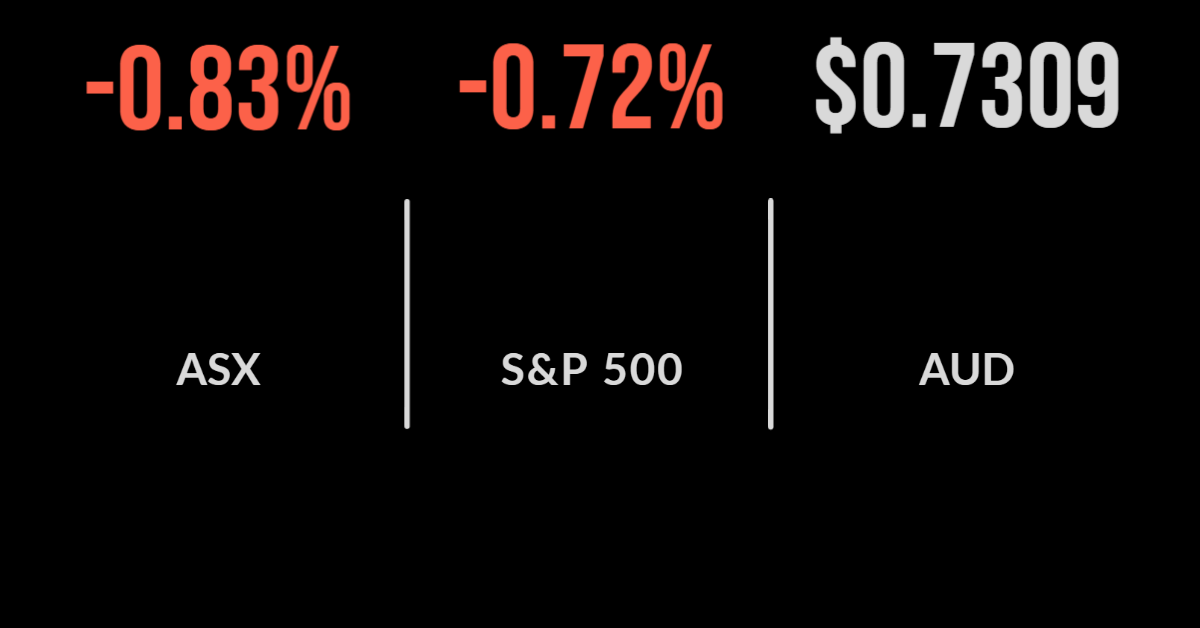Market weakens, defensive stocks outperform, Nickel up 100 per cent in two days
The selling pressure continued on Wednesday with the S&P/ASX200 falling 0.8 per cent as uncertainty around the world continues to grow.
Recent winners in energy and materials led the selloff down 3.6 and 3.3 per cent respectively with BHP (ASX: BHP) and Rio Tinto (ASX: RIO) among the hardest hit, falling 3.7 and 4.3 per cent.
Among the strangest moves in recent days has been the 100 per cent jump in the price of nickel, to over US$100,000, as another short squeeze plays out, with Russia a key producer.
Interestingly Australia’s Nickel Mines (ASX: NIC) fell another 10 per cent. As has been the case in previous crises, when things look their worst money flocks into the ‘defensive’ sectors of the market like healthcare and groceries.
This is driven by managers who are forced to remain fully invested at all times seeking to identify the least risky parts of the market.
This time has been no different, with the healthcare and consumer staples sectors outperforming adding 1.9 and 1.8 per cent respectively.
The highlights were Woolworths (ASX: WOW), CSL (ASX: CSL) and Coles (ASX: COL) which were up 3.4, 2.9 and 2.1 per cent each.
Business confidence improves, International Women’s Day, wheat prices and rate hikes
Businesses appear to become more confident despite the difficult geopolitical backdrop, with NAB’s business conditions index moving back above the long-term average, with employment a key driver.
Nickel’s surge has garnered most of the attention due to Russia’s role in supplying the mineral, but the price of wheat has been similarly strong, touching record highs in recent week.
The spike which is unlikely to be sustainable has seen shares in GrainCorp (ASX: GNC) double over the last 12 months but fall 3 per cent on Tuesday.
International Women’s Day has dominated headlines, with the financial services sector among the worst in terms of gender equality and opportunity. At Wattle we remain committed to closing this gap at any opportunity.
Speaking at the AFR’s Business Summit today Paul Keating placed further pressure on the Reserve Bank to raise interest rates, suggesting they ‘get on the curve’ rather than stuck behind it.
This is clearly a challenging period with the spike in fuel prices a significant brake on growth.
The currency also stands out as a potential issue should the RBA allow the Federal Reserve to get too far ahead.
Sanctions expand, US bans Russian oil, Google buys, Apple’s latest launch
Global markets appeared to be turning the corner with the US ban of Russian oil imports seemingly priced in, moving little after the announcement.Despite this, all three benchmarks finished in the red.
The Nasdaq, which is experiencing its third bear market in five years outperformed, falling 0.3 per cent with the S&P500 and Dow Jones finishing 0.7 and 0.6 per cent lower.
Pressure on Russia continues to ramp up amid a ceasefire to allow civilians to flee, with McDonald’s (NYSE: MCD) announcing they would close more than 800 stores in the country.
The oil price weakened by Shell (NYSE: SHEL) gained after announcing they would not buy any oil and would close all operations in the country including service stations; these plans will have a significant impact on the population.
Google (NYSE: GOOGL) announced they would be acquiring Mandiant (NASDAQ: MDNT) a cybersecurity firm as the company seeks to expand into more verticals.
Apple’s (NYSE: AAPL) shares fell slightly despite announcing an expansion of their low-cost iPhones, new chips and the inclusion of Major League Baseball within their AppleTV offer.








